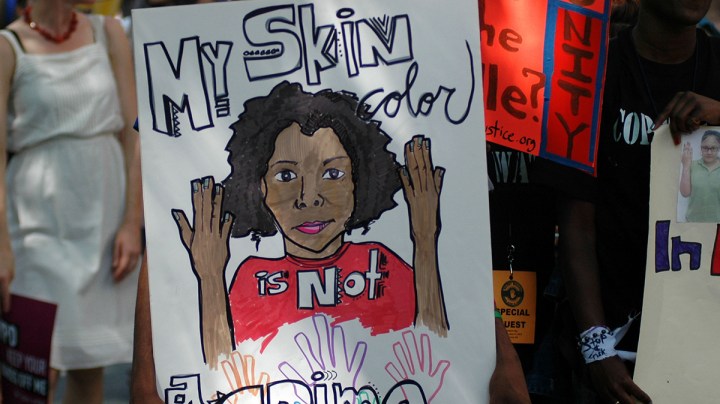California Makes Strides to Fight Racial Profiling by Police With New Law

Michael Fleshman
In the last few years, mainstream America’s eyes have been opened to the stark racial disparities in policing in this country. The high-profile murders of several young men of color in the last year alone have raised difficult questions about how to reform our law enforcement system – starting with how to collect better data about who gets arrested and killed by police.
To that end, this weekend California Gov. Jerry Brown signed legislation requiring Californian police departments to collect and publicize the racial makeup of all those they interact with, according to the Los Angeles Times.
The law was written by Assemblywoman Shirley Weber in response to police shootings of unarmed black men, with the goal of protecting people of color from racial profiling. But many law enforcement organizations and individuals are pushing back. “It’s a terrible piece of legislation,” said Lt. Steve James, president of the Long Beach Police Officers Assn, to the LA Times. His sentiments reflected those of many officers who feel this law will just add more work to their plates. “We have contact with the public all the time that requires no documentation, no paperwork,” he said. “Now, the amount of time we have to spend doing documentation and paperwork has gone up. The time doing menial tasks has gone up.”
James also argued that the law was unnecessary because there is no racial profiling. To which POCs were like,
Data collected by the attorney general’s office does not support James’ claims. Six percent of Californians are African-Americans, but they account for 17 percent of arrests, according to The Associated Press.
AB953 not only requires police officers to identify the races of those they stop, they also have to explain why they were stopped and if the interaction ended in an arrest or citation. The attorney general will also need to start an advisory board to further look into the issue of racial profiling, and to give officers the tools to avoid doing it in the future. The law will go into effect by April 2019 for bigger departments, and by April 2023 for everyone.
Because of last year’s shooting death of 18-year-old Michael Brown by a police officer, 40 bills have been proposed across 24 states to deal with this issue.